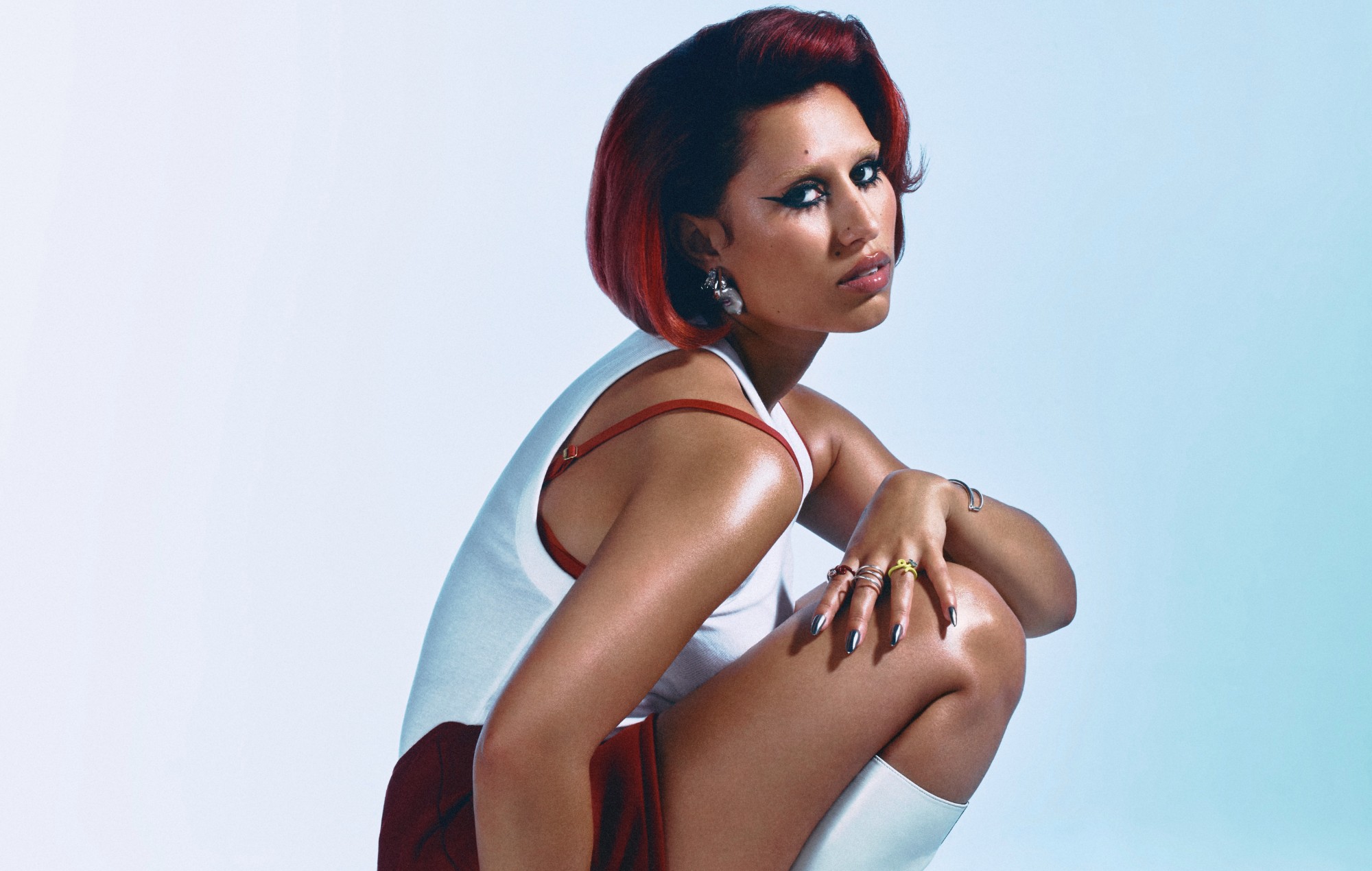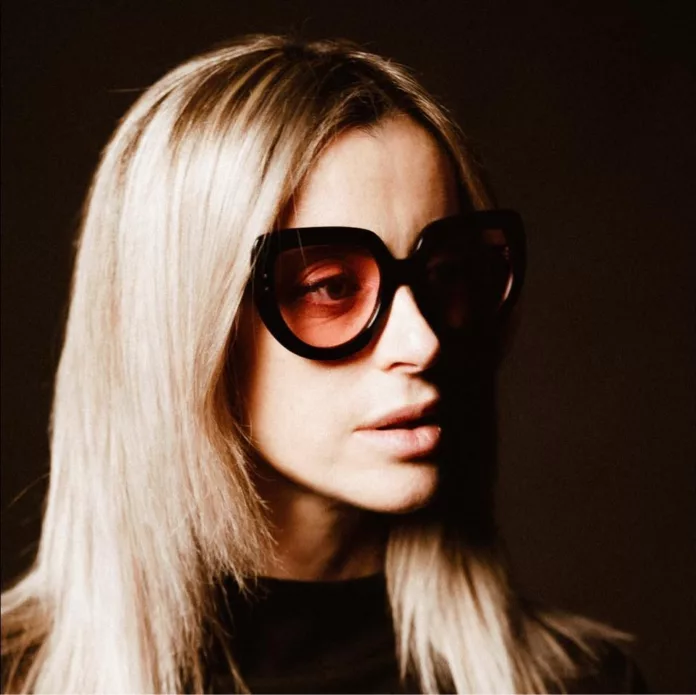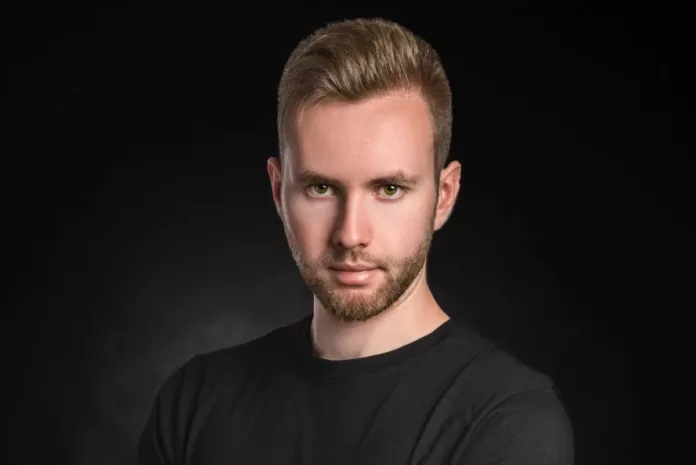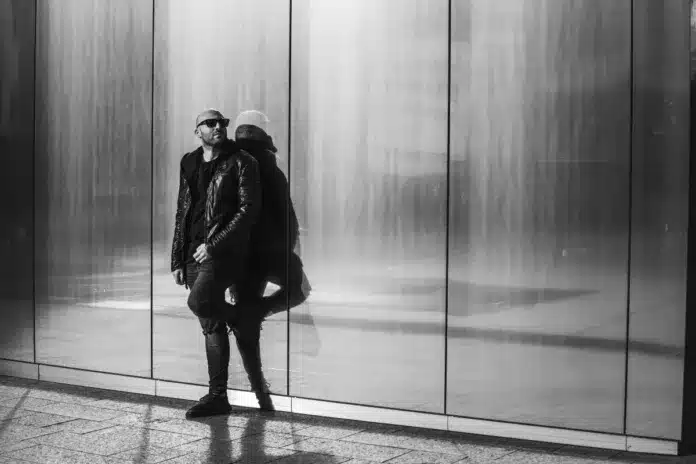
RAYE: “I became a ‘rent-a-verse’. People knew my songs, but they didn’t know me”
A year ago, RAYE called out her record label, Polydor, for delaying her debut album. Again. “I’ve done everything they asked me, I switched genres, I worked 7 days a week,” she wrote on Twitter. “Ask anyone in the music game, they know. I’m done being a polite pop star. I want to make my album now, please that is all I want.”
RAYE’s public expression of her intense frustration – “I’m sick of being in pain” – sent shockwaves through the music industry. How could an artist who’d been signed since 2014 and scored nine UK Top 40 singles be feeling so stifled? The situation became even more baffling when you factored in RAYE’s side hustle as an in-demand songwriter who’s written for Beyoncé (‘Bigger’), Mabel (‘Let Them Know’) and Charli XCX (‘After The Afterparty’).
At the time, RAYE was riding high in the charts with ‘Bed’, an inescapable dance collaboration with David Guetta and Joel Corry that has now amassed 350 million Spotify streams. But according to RAYE, this wasn’t enough: her euphoric follow-up single ‘Call On Me’ needed to “do well” for the album to get a green light.
it’s fair to say the shit hit the fan, and three weeks later, RAYE announced that she had and Polydor had parted ways. “Polydor are an incredible infrastructure power house team,” she wrote graciously. “Unfortunately we have had different goals artistically and I am very grateful to them for giving me a graceful smooth exit to start my next chapter as an artist.” After eight years on a major, RAYE found herself navigating unchartered and potentially choppy waters as an independent artist.
“It’s weird,” she tells NME today as we sit in the kitchen of her south London home, a few miles from Croydon, where she grew up. “When you sign with a record label, technically they work for you: you’re signing to a company for them to work for your career and take you to that next level. But as a woman, it just doesn’t feel like that. It feels like you’re working for them. And you know, some of the things I had to put my body through to even be able to that… it’s really quite sad.”
Throughout our hour-long conversation, the artist born Rachel Agatha Keen is as warm and straight-talking as she’s always been. She’s also a relaxed host: some musicians would wince at the idea of welcoming a journalist into their house, but RAYE puts NME completely at ease by making coffee and chatting about ABBA’s virtual concert residency. However, there are points in the interview where it’s clear she’s holding back parts of her story until a future date when it makes sense to share them. Having wrestled back control of her career, RAYE isn’t about to let her narrative run away from her.
Still, when she said a year ago that she was “done being a polite pop star”, RAYE wasn’t making an idle threat. “All the white men CEOs – fuck your privilege!” she sings on her brilliant new single ‘Hard Out Here’, an uncompromising slab of confessional pop. “Get your pink chubby hands off my mouth / ‘Fuck you think this is? I told my lawyer: ‘Stand by – there is no wrath like a woman scorned.’”
It’s scathing, bracing, no-holds-barred stuff, and the first single from what will eventually become RAYE’s debut album. “If you’re going to listen to that lyric and take offence, then in my opinion, you need to look into yourself,” she says. “It’s the reality of how it is. At the end of the day, I felt for a long time in my career like I had someone’s hand over my mouth and I wasn’t saying what I really wanted to say.”
RAYE wrote ‘Hard Out Here’ after she put Polydor on blast, but before she and the label agreed to part ways. It sounds as though the creative process was almost a stream of consciousness. “It was an old track that I took the beat from and wrote a completely new song over,” she recalls. “I was crying, I was writing, and I was so angry and hurt. I needed that song. Once I finished writing it, I was running round the garden like a crazy person singing the lyrics.”
She says the song’s “baby I bounce back” line is especially empowering for her. “I created this song to remind myself who I am,” RAYE explains, her body language equal parts pride and defiance.
‘Hard Out Here’ isn’t the first song RAYE has released as an independent artist. In March, she teamed up with Disclosure for the catchy, UK garage-flavoured ‘Waterfall’. It added to her already impressive roll call of club-ready collabs that includes 2016’s ‘You Don’t Know Me’ with Jax Jones, 2017’s ‘Decline’ with Mr. Eazi, 2020’s ‘Secrets’ with Regard and last year’s ‘Bed’ with Joel Corry and David Guetta.
But ‘Hard Out Here’ represents a very deliberate change of lane. The lyrics are a world away from “I got a bed, but I’d rather be in yours tonight.” On the final verse, RAYE alludes to suicidal thoughts, addiction issues and a possible experience of abuse. “What you know about systems? / About drugged drinks, fucking nearly dying from addictions,” she sings. “You start to wonder why I’m Christian / Without the Lord I’d take my life.”
Is she singing about the things she had to “put her body through” just to keep afloat in major label purgatory? Did she feel as though she needed to drink in order to play a role? “I’m not even gonna lie: it goes deeper than drinking, and I talk about it on this album,” RAYE replies carefully. “You know, I don’t want to get into it now, but when those songs come out, I’d love to sit down with you again and really explain that.”
She pauses for thought. “You know, it’s also uncomfortable, I think, as a woman. Those things that are going on behind the scenes aren’t attractive to talk about. They aren’t comfortable or pleasant to talk about. They’re embarrassing.” When RAYE’s sister asked if she really wanted to broach these topics on the album, the answer was an unequivocal ‘yes’. “This is the reality of what I went through: what I hid, what I suppressed and what I pretended wasn’t going on,” she says. “But it was also what I had to do to get the job done. And it wasn’t just me, though I’m never going to speak on another woman’s story.”
RAYE knows what it takes to push through this discomfort and call out deeply toxic behaviour. If ‘Hard Out Here’ is fundamentally cathartic, her next single ‘Black Mascara’ is very much a flex. “Try to understand what you’ve done to me, what you’ve done to me,” she sings over percolating club beats. It’s a song that doesn’t just bring to mind tears on the dance floor, but also rage and retribution aimed at the “selfish man” she refers to in the lyrics.
“The dance community is super male-dominated, super male-led, and a lot of the people in the dance industry don’t even make their shit. It’s wild,” she says. “So I think for me to be releasing a dance song on my own, in a slightly unique way, is super-empowering.” It’s also “a little nod” to fans who love her dance bangers. “I love dance RAYE too, but it’s not the only thing I am,” she says. “And that’s really been the issue.” She goes on to explain the creative compromise of “switching genres” at her label’s behest, something she mentioned in her 2021 tweets.
“When I was 17, I had an 11-track R&B album [in the bag],” she recalls. “But then I put pen to paper [on my record contract], and all of a sudden it was like: ‘OK, we need you to learn how to make music that sells.’ RAYE was sent to Sweden to “study the maths of songwriting” and really applied herself. “I got good at writing those big, earwormy hooks that stick in your head,” she says. “But where it got tricky was, like, I became ‘rent-a-verse’. It was like, ‘Get RAYE on that artist’s track.’ And so people would know my songs, but they wouldn’t necessarily know me.”
“I felt for a long time in my career like I had someone’s hand over my mouth”
‘Rent-a-verse’ may be a really brutal way of describing her place in the industry, but the majority of RAYE’s most streamed songs have been collaborations with male DJ-producers, something she admits to having mixed feelings about now.
“It did incredible things for me: the places I got to perform, where my music travelled,” she says. “But that’s Jax Jones, that’s Joel Corry. People aren’t like: ‘Who’s the singer behind that? I wanna go and see her.’ For a lot of my career, I’ve been helping to elevate men to the next level. But when that hit has passed…” RAYE trails off. “You know, that’s a tough thing to deal with.” Too often she would hear her song on the radio, but the DJ would only mention the male artist’s name, not hers.
Given everything RAYE has endured in the music industry – slights, sexism, a hell of a lot worse – it’s no wonder she’s so determined now to “do it how I want to do it”. She even achieved some kind of closure at this year’s BRIT Awards by plucking up the courage to jump on the Polydor party bus. She cleared the air with members of her former team and received at least one proper apology. “You know what [someone] said to me?” RAYE says somewhat incredulously. “‘No one at the whole of Polydor could challenge me in saying that you were the hardest-working artist on our roster.’”

RAYE admits this felt “kind of validating”, but then chastises herself slightly for saying so. She’s moved on and looking to the future, which includes an incredibly exciting songwriting assignment with actual J.Lo. “I’m out the other side now and so blessed to have walked away [from Polydor] with all my songs: all of them,” she says. The aim now is to build her own profile and fanbase, not enhance someone else’s. “I just want to be seen as an artist,” she says, “which is a weird thing to admit, because obviously it’s my job title, but I haven’t always felt like one in my career thus far.”
Still, RAYE has no intention of dwelling on regrets. “Hun, I am feeling the most peace,” she adds with a smile. “I’m happier than I’ve ever felt before.”
– RAYE’s ‘Hard Out Here’, released independently, is out now





